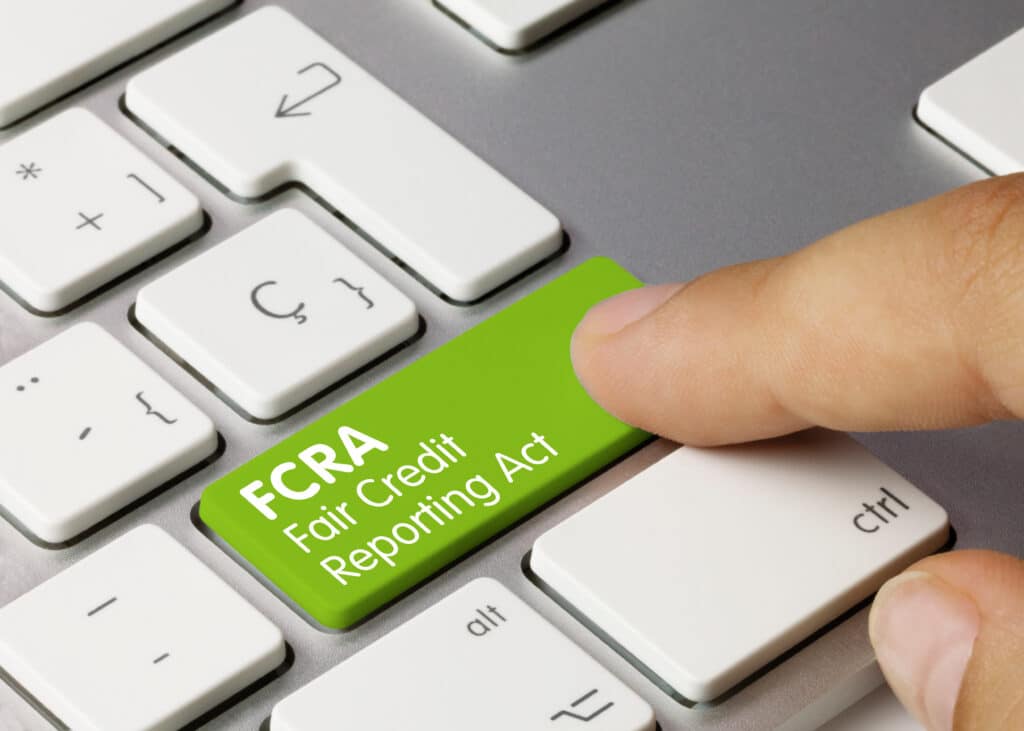
In the realm of hiring, background checks play a pivotal role. They provide a comprehensive view of a candidate’s past, aiding employers in making informed decisions.
However, the accuracy of these checks is a critical concern. Inaccurate information can lead to wrongful hiring or unjustified rejection of candidates.
This article delves into the intricacies of background checks accuracy. It explores the factors that affect the reliability of these checks and the importance of FCRA compliance.
We will also discuss the role of The Screening Source in ensuring accurate and lawful background checks. This company is a beacon of FCRA compliance, providing reliable screening services.
Whether you are an HR professional, employer, recruiter, or legal professional, this article will provide valuable insights.
Join us as we navigate the complex landscape of background checks, their accuracy, and the legal and ethical considerations involved.
The Imperative of Accuracy in Background Checks
Background checks serve as a crucial tool in the hiring process. They offer a detailed view of a candidate’s history, including criminal records, credit reports, and employment history.
However, the accuracy of these checks is paramount. Inaccurate information can lead to significant consequences, such as wrongful hiring or unjustified rejection of candidates.
Errors in background checks can stem from various sources. These include outdated public records, identity theft, and limitations of database searches.
The impact of these inaccuracies can be far-reaching. They can affect the reputation of the company, lead to legal ramifications, and cause undue distress to candidates.
Therefore, ensuring the accuracy of background checks is not just a matter of compliance, but also of ethical responsibility.
Understanding the FCRA and Its Impact on Background Checks
The Fair Credit Reporting Act (FCRA) plays a significant role in background checks. It sets the legal standards for consumer reporting agencies, ensuring the accuracy and privacy of information.
Employers and screening agencies have legal obligations under the FCRA. These include obtaining consent from candidates, providing notice of adverse action, and ensuring the accuracy of information.
Non-compliance with the FCRA can lead to hefty fines and legal action. Therefore, understanding and adhering to the FCRA is crucial for anyone involved in the hiring process.
Moreover, the FCRA also provides a framework for disputing inaccuracies in background check reports, safeguarding the rights of candidates.
The Screening Source: A Beacon of FCRA Compliance
The Screening Source stands as a leading provider of accurate and FCRA-compliant background checks. They understand the importance of accuracy and the potential consequences of inaccuracies.
Their processes are designed to ensure comprehensive and accurate results. They use multiple data sources, manual verification, and advanced technology to minimize errors.
The Screening Source also places a high emphasis on FCRA compliance. They provide clear communication with candidates, respect privacy concerns, and have a fair dispute resolution process.
By partnering with The Screening Source, employers can mitigate risks, ensure compliance, and make informed hiring decisions.
The Anatomy of a Background Check
A background check is a complex process. It involves gathering and verifying information from various sources to create a comprehensive profile of a candidate.
The information collected can include criminal records, credit reports, employment history, and educational qualifications. Each of these elements provides a different perspective on the candidate’s suitability for a role.
However, the accuracy of this information is crucial. Inaccurate or outdated information can lead to misinformed hiring decisions and potential legal issues.
Moreover, the process of gathering and verifying this information can be challenging. It requires access to reliable data sources, robust verification processes, and a deep understanding of legal and ethical considerations.
The role of technology in this process is also significant. Advanced algorithms, machine learning, and automation can enhance the accuracy and efficiency of background checks.
However, technology alone is not enough. Human oversight, professional expertise, and a commitment to ethical practices are equally important.
Diverse Data Sources: Ensuring a Comprehensive Check
A comprehensive background check requires information from diverse sources. These can include public records, private databases, credit bureaus, and previous employers.
Each source provides a different piece of the puzzle. For example, criminal records can reveal past offenses, while credit reports can indicate financial responsibility.
However, using multiple sources also increases the potential for errors. Discrepancies between sources, outdated information, and data entry errors can all impact the accuracy of the check.
Therefore, it’s crucial to have robust verification processes in place. These can include manual verification, cross-referencing data, and using advanced algorithms to detect anomalies.
The Challenge of Accuracy: Common Pitfalls and Errors
Ensuring the accuracy of background checks is a complex task. There are several common pitfalls and errors that can impact the reliability of the results.
One of the main challenges is the potential for outdated or incomplete public records. These can lead to false negatives or false positives, both of which can have serious consequences.
Identity theft and fraud can also impact the accuracy of background checks. They can lead to incorrect information being associated with the wrong individual.
Moreover, database limitations and the reliance on manual verification can also introduce errors. These can include data entry errors, misinterpretation of information, and missed records.
Therefore, it’s crucial to be aware of these challenges and to have strategies in place to mitigate them. This can include using multiple data sources, continuous monitoring and updates, and investing in advanced technology.
Legal and Ethical Considerations
Conducting background checks involves navigating a complex legal landscape. Compliance with laws such as the Fair Credit Reporting Act (FCRA) is crucial.
The FCRA sets standards for how consumer information can be collected, shared, and used. It also provides individuals with rights to access and dispute their information.
However, legal compliance goes beyond the FCRA. There are also state and local laws, industry-specific regulations, and international laws to consider.
Moreover, ethical considerations are equally important. These can include respecting candidate privacy, ensuring transparency, and maintaining a commitment to fairness and accuracy.
Navigating the Legal Landscape: Compliance Beyond the FCRA
While the FCRA is a key piece of legislation, it’s not the only one that impacts background checks. State and local laws can also have significant implications.
For example, some states have “ban the box” laws that limit when employers can ask about criminal history. Others have laws that restrict the use of credit information in hiring decisions.
International laws can also come into play, especially for multinational companies or those hiring foreign candidates. These can include data protection laws, privacy regulations, and laws governing the use of criminal records.
Therefore, it’s crucial to have a deep understanding of the legal landscape and to stay abreast of changes. This can involve ongoing legal review, training, and partnering with a reputable background check provider.
Privacy Concerns and Candidate Rights
Privacy is a key concern in background checks. Candidates have a right to know what information is being collected, how it’s being used, and who has access to it.
The FCRA provides individuals with certain rights, including the right to access their information and dispute inaccuracies. However, privacy considerations go beyond legal obligations.
For example, it’s important to consider the potential impact of background checks on candidate trust and perception. Transparency and communication can play a key role in this.
Moreover, data protection measures are crucial. This can include cybersecurity measures, secure data handling practices, and a commitment to ethical data use.
Technological Advancements and Their Role in Accuracy
Technology plays a crucial role in enhancing the accuracy of background checks. Advanced algorithms and machine learning can help reduce errors and false positives.
For instance, these technologies can help identify patterns and anomalies in data that may indicate inaccuracies. They can also automate parts of the verification process, improving efficiency.
However, technology is not a panacea. Human oversight and personalized assessments remain essential. This is particularly true for complex checks, such as those involving international records or nuanced legal considerations.
Moreover, technology can also introduce new challenges. For example, the rise of identity theft and fraud can complicate the accuracy of background checks. Therefore, a balanced approach that combines technology with human expertise is key.
The Future of Background Checks: Emerging Trends
The field of background checks is continuously evolving. Emerging trends include the increased use of continuous monitoring, biometric verification, and social media checks.
Continuous monitoring involves regularly updating background check information, rather than conducting a one-time check. This can help ensure that employers have the most current and accurate information.
Biometric verification, such as fingerprint or facial recognition, can enhance the accuracy of identity checks. However, it also raises new privacy and ethical considerations.
Finally, the use of social media and online presence in background checks is a growing trend. While this can provide additional insights, it also introduces new challenges in terms of accuracy, privacy, and legal compliance. Therefore, staying abreast of these trends and understanding their implications is crucial.
Conclusion: The Importance of Choosing the Right Partner
In conclusion, the accuracy of background checks is a complex issue with far-reaching implications. It involves a delicate balance between thoroughness, timeliness, legal compliance, and respect for candidate rights.
Choosing the right partner for conducting background checks is therefore crucial. A reputable and experienced provider like The Screening Source can help navigate these complexities. They can ensure a comprehensive and accurate check, while also adhering to legal standards and best practices.
In the end, the goal is to make informed and fair hiring decisions. This not only benefits employers, but also contributes to a fair and equitable job market. Therefore, investing in accurate and lawful background checks is not just a legal obligation, but also a moral and strategic imperative.
